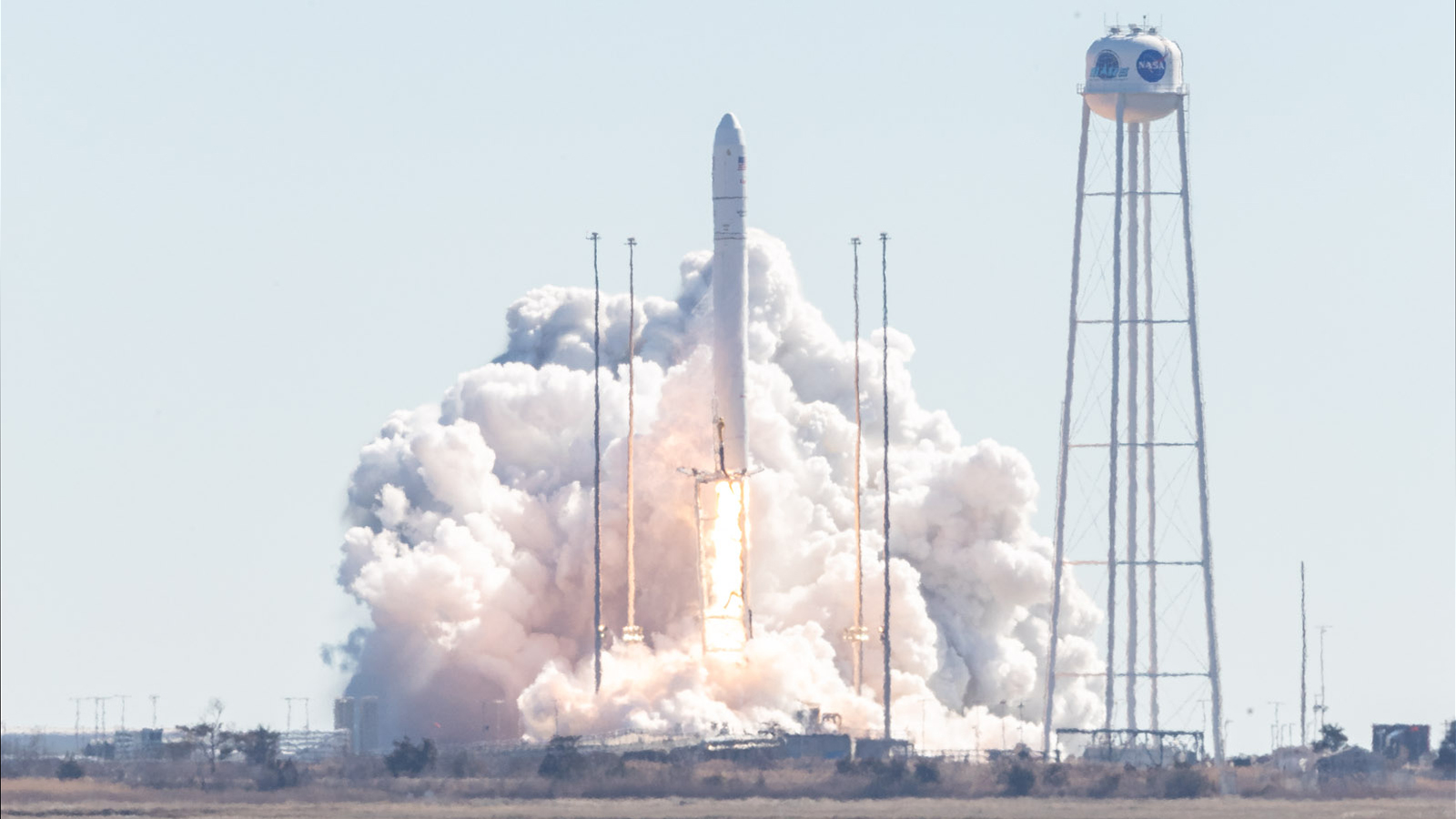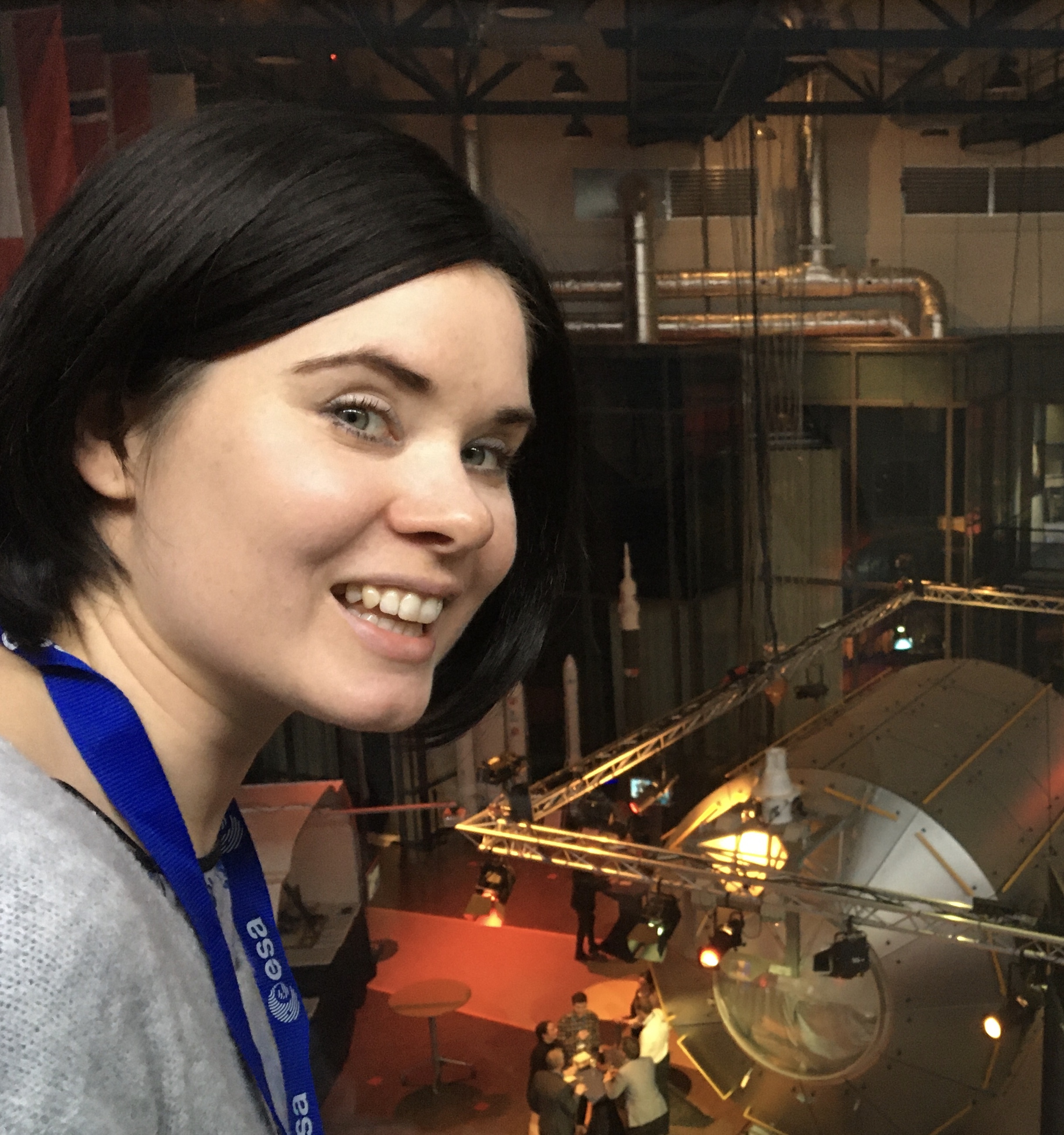Ukraine's proud space industry faces obliteration, but country's former space chief has hope for the future
"Leave Soyuz, go Zenit!"

Ukraine has a mighty space industry whose Zenit rocket is Elon Musk's favorite. But the country's potential might soon lie in ruins together with its dreams as Russia continues its bloody siege. However, the country's former space boss told Space.com that he still has hopes for the future and believes the underdog Ukraine could help fill Russia's shoes in international collaborations.
With 16,000 employees, the Ukrainian Space Agency nearly matches NASA's size. A legacy institution from the Soviet era, the agency controls 20 state-run corporations centered in what Volodymyr Usov, its former chairman, calls Ukraine's space cluster, a region between the cities of Dnipro, Kharkiv and Kyiv.
The Dnipro-based Yuzhmash and Yuzhnoye enterprises are at the heart of the country's space industry, building over 100 launch vehicles a year. In addition to Musk's favorite Zenit rocket family, the companies are best known in the west for designing and manufacturing first stages for the Antares rocket, which launches the Northrop Grumman Cygnus cargo vehicle to the International Space Station. Yuzhnoye also manufactures engines for Europe's Vega rockets.
The research and manufacturing facilities, including giant hangars and complex test benches, are worth billions of dollars, Usov told Space.com. So far, Russian troops have avoided the facilities, but as fighting closes in on Dnipro, the situation might change.
"I believe they are avoiding them for now because they want to get hold of them and use them for their purposes," Usov said about the Russians. "If we win before everything is destroyed, we will keep that research and production capacity. But it can change any day. Two strikes on Youzmash and it will never recover."
Related: US launch providers eyeing Russia-Ukraine situation
It's not just the threat of irreplaceable technological loss that worries Usov. The facilities, which also develop a new generation of solid fuel rocket motors, store huge amounts of toxic chemicals used in rocket propulsion that would leak into the environment if hit by Russia's missiles.
Get the Space.com Newsletter
Breaking space news, the latest updates on rocket launches, skywatching events and more!
"It would be a huge ecological catastrophe," Usov said. "It really is a big enterprise with a lot of capacity inside and loads of special liquids and rocket fuel. It would be a huge environmental disaster not just for Ukraine but for Europe."
But despite the unrelenting onslaught of Russian invaders, Usov appears to have hope for the future and faith that Ukraine and its space industry can come out of its hour of darkness not just alive, but strengthened. The technologist spoke to Space.com on Tuesday (March. 1), the sixth day of the invasion. He had just arrived in his hometown of Odessa after a week in the heavily shelled Kyiv.
"It was missile attacks and bombing from day one on February 24," Usov said. "There would be air alarms every three hours. People living underground. I saw babies being born underground, which is absolutely crazy to see in the 21st century."
In Odessa, a city on the Black Sea coast with a population of 1 million (25% of whom are ethnically Russian), things have been relatively calm so far, Usov said. But even on that front, things can change soon.
"Now we see that Russia is attacking primarily Kiev and Kharkiv," Usov said. "They always consider Odessa as the number one pro-Russia city in Ukraine. And they are now absolutely amazed to see that nobody's supporting Russia, even in Odessa."

When it comes to Ukraine's relationships with Russia in the space sector, Usov doesn't mince words. For years, he believes, Russia has been undermining Ukraine's ambitions and interests.
"Russia has only ever wanted us to be their partner and do things on their terms," he said. "But when we talk about our own space ecosystem, independent of them, that's something they cannot even think about."
Russia, he said, used their political influence to pressure Brazil to pull out from the development of the Cyclone 4M launcher the two countries were building together for Brazil's proposed spaceport in Alcantara. The project was stopped in 2015, one year after Russia's annexation of the formerly Ukrainian territory of Crimea.
"Even after Brazil spent about $500 million on that, they closed the project because of the tension," Usov said. "That's what Russia is doing."
In spite of the vast numbers of Russian troops and the amount of attack equipment that is currently inflicting unimaginable destruction on Ukraine, he still hopes that Ukraine can outlast the aggression and become a bigger player in the international space sector, perhaps even fill the gap left by the now internationally disgraced Russia.
Usov's ambition has long been to shift Ukraine's state-controlled Soviet-style space operations towards a more western-style, commercially driven model where start-ups and new innovative companies could thrive next to the traditional establishments.
Usov himself co-founded two start-ups: Kurs Orbital, focused on in-orbit satellite servicing and space debris removal that builds on the Kurs automatic rendezvous and docking system co-developed by Russia and Ukraine for the International Space Station, and Orbit Boy, a firm developing a microsatellite air-launch system akin to Virgin Orbit's LauncherOne.
"I want to open Ukraine to the world and show that it can be a trustworthy partner," he said. "But we need to create really good conditions and terms for other companies to cooperate with Ukraine. Before the war started, we were working on new legislation, which has already been signed and implemented by the President of Ukraine, to enable private companies to build space technology in Ukraine."
While appreciative of the current outpouring of support for his embattled nation, Usov has reservations about the western continued cooperation with Russia following Russia's forceful annexation of the Crimean peninsula in 2014. The space industry's reluctance to take stock of the partnership in light of Russia's actions is quite unfathomable from the Ukrainian perspective, he said.
"Here in Ukraine, we have always understood what Russia can bring to the table," Usov said. "Now, the European nations and the U.S. understand it too. And in my view, if you partner with Russia, you take responsibility for the crimes, for the innocent people dying. So my message to everyone is: leave Soyuz, go Zenit. You can cut ties with Russia and bring in Ukraine and we will be ready for the task."
The odds appear stacked against Ukraine, but it has already surprised the entire world with its defiance. Yet, Russia has not yet said the last word. On Tuesday (March 1), a 40-mile-long (65 kilometers) convoy of Russian army vehicles was spotted by satellites approaching Kyiv. Throughout Wednesday (March 2), reports of heavy shelling and widespread destruction have been coming from Kyiv, Kharkov, Kherson and Mariupol.
What does Usov expect in case of Ukraine's defeat?
"The young generation [of aerospace professionals] will leave, they already have a lot of opportunities abroad," he said. "The space industry community in Ukraine, that's three to four generations of people working at places like Yuzmash. They choose working there with low salaries because they are proud of what they're doing in Ukraine. I think if Russia will take over that key enterprise, they will leave. But the older generation, they know that things will change, they have seen it change dramatically several times. So I think they will be the keepers of the enterprise until we get it back."
Follow Tereza Pultarova on Twitter @TerezaPultarova. Follow us on Twitter @Spacedotcom and on Facebook.
Join our Space Forums to keep talking space on the latest missions, night sky and more! And if you have a news tip, correction or comment, let us know at: community@space.com.

Tereza is a London-based science and technology journalist, aspiring fiction writer and amateur gymnast. Originally from Prague, the Czech Republic, she spent the first seven years of her career working as a reporter, script-writer and presenter for various TV programmes of the Czech Public Service Television. She later took a career break to pursue further education and added a Master's in Science from the International Space University, France, to her Bachelor's in Journalism and Master's in Cultural Anthropology from Prague's Charles University. She worked as a reporter at the Engineering and Technology magazine, freelanced for a range of publications including Live Science, Space.com, Professional Engineering, Via Satellite and Space News and served as a maternity cover science editor at the European Space Agency.









